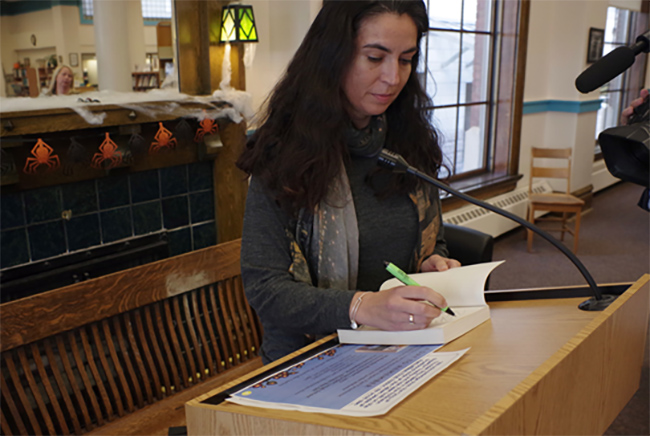‘Seven Fallen Feathers’ author added epilogue after two more First Nation youth died this past summer

By Rick Garrick
THUNDER BAY – After two First Nations youth died this past summer in Thunder Bay, Seven Fallen Feathers: Racism, Death, and Hard Truths in a Northern City author Tanya Talaga added an epilogue to her book.
“I thought I was finished the book and then sadly on May 6 when two others went missing, I realized I wasn’t,” says the Toronto Star journalist, noting that the phones started going off at a Nishnawbe Aski Nation (NAN) gathering in Timmins when the youth went missing. “Once the word was out, it broke everybody, it really did, everyone that was connected to the seven families, the families themselves, the lawyers, the police, people in Thunder Bay. I think everyone was stunned as to what happened and then when their bodies were found within two weeks, it just was awful.”
Talaga says she wrote the epilogue “really fast.”
“There is no happy ending to the story,” Talaga says. “When people read the book, sometimes they feel that it’s very hard reading and it’s kind of depressing. But I want people to know this book is about love and that everyone loved their children and the parents loved their children. And all of their lives made a difference. I really do think the happy ending is going to have to be written by the people here now.”
Talaga, whose grandmother is a Fort William citizen, first developed the idea for the book in 2011 after former NAN grand chief Stan Beardy encouraged her to write about Jordan Wabasse’s death. Wabasse was one of seven NAN youth who died in Thunder Bay from 2000-2011 while pursuing their high school studies.
“I started writing news articles in 2011,” Talaga says. “It was always in the back of my head that I knew I would one day be doing this but I didn’t start to write it until the end of the (Seven Youth) Inquest, so the end of June 2016.”
Talaga says the contacts she made with the families of the seven youth while writing the news stories enabled her to reach out to them for the book. She wrote a chapter on each of the seven youth in the book.
“I never did get to speak to Curran (Strang’s) family, so I spoke to one of his good friends instead,” Talaga says. “It was hard. It’s not easy talking about this. I really thank the families and the friends that I spoke to, because, as I said, the book is a book about love. These kids were loved by their families and their communities.”
Talaga says there has been a good response to her book across the country.
“Canadians, Indigenous and not, have really taken to the book,” Talaga says. “A lot of people are reading it and a lot of people are saying they really feel moved by it and they feel like they understand more. And I hope that’s true.”
Talaga says an important lesson she learned while working on the book was to listen when people are talking.
“It’s really important to sort of sit down and listen when someone is talking,” Talaga says. “Just take your time and try not to be someone who takes stories. Try and give back something as well. I’ve tried to make sure that the voices of the kids are heard in this book and that the book is really honouring them.”
Talaga’s book is a national bestseller and it has been short-listed for the Hilary Weston Writers’ Trust Prize for Nonfiction. The winner will be revealed on Nov. 14.


